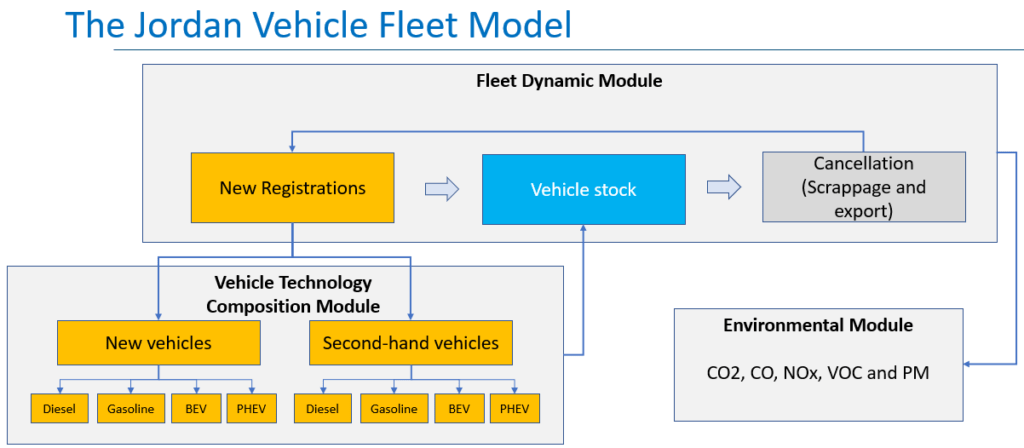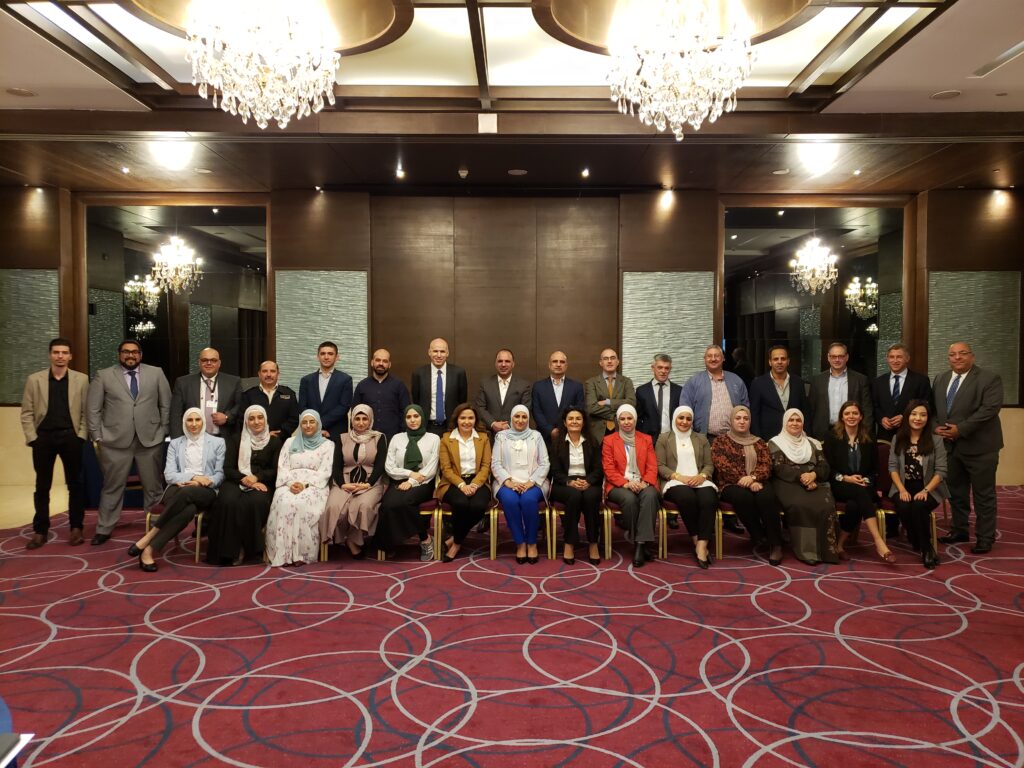7 August 2023 In Blog Post, E-mobility, MENA, News
TRT Trasporti e Territorio Helping to Shape Jordan’s E-Mobility Transition Strategy
TRT Trasporti e Territorio is an independent consultancy, with offices in Milan and Brussels, specialised in mobility and transport economics, planning and modelling. In the area of sustainable mobility, TRT has expertise in the analysis and assessment of policies on energy efficiency and GHG emission reduction, studies on transport external costs and internalisation measures, and strategic planning for the design of more sustainable and inclusive transport systems.
TRT, with the support of MRC Consultants and Transaction Advisers, is carrying out a study for the World Bank supporting the design of a national electric mobility strategy for Jordan. The study involves the definition and assessment of policy options and uptake action plan for the medium-term (2030), focusing in particular on solutions for charging infrastructure deployment, electricity pricing, and incentives for electric vehicles (EVs) adoption. The outcomes of study will inform the policy dialogues between donors and public stakeholders and help the Jordanian Government in its effort to accelerate the uptake of electric vehicles.
Jordan’s transport sector contributes to nearly 40% of the country’s final energy consumption and 35% of GHG emissions from energy (IEA, 2020). It is also heavily reliant on fossil fuels, which makes it a source of urban air quality issues and of energy security risks related to the Jordan’s dependency on foreign fuel supplies. Electrification is thus increasingly seen as a critical option to decarbonise Jordan’s transport sector and achieve its ambitious Nationally Determined Contribution, the country’s self-defined national climate pledges under the Paris Agreement. Not by chance, the Government recently included the development of a National E-Mobility Strategy among the actions to be undertaken fostering more efficient and environmentally responsive solutions in the energy sector.

The backbone of the evaluation framework used in the study is the Jordan Vehicle Fleet Model (JVFM), a model TRT has specifically designed through the inhouse System Dynamics model ASTRA to assess the evolution of the vehicle fleet until 2050 and forecast the uptake of EVs in different transport segments (private and commercial cars, LDV, buses and mini-buses, etc.). Among other things, the model allows us to understand the future composition of the national vehicle fleet, and thereby quantify the impacts that the EV transition can have for private and public stakeholders (capital costs for vehicle owners, investments for new charging infrastructures, public transport fleet renewal, power generation and distribution capacity upgrade). Moreover, by knowing the vehicle categories passenger transport relies on in Jordan, it is also possible to assess in which segments the case for electrification is stronger, and whether cars, 2-3 wheelers or high-mileage vehicles such as light-duty vehicles and buses should be prioritised in the e-mobility strategy.
The energy sector is another focus area of the study, particularly regarding the additional electricity demand required for EV charging and how the Jordanian power sector can accommodate such demand. For example, It is known that the time profile of EV charging can exacerbate peak demand, creating physical stress on power systems and also financial stress due to additional investments required for power infrastructure upgrades. Hence, the study provides evidence on how the transition to EV can be anticipated and proactively managed by the energy sector. It identifies gaps, options and business models for charging infrastructure deployment for both privately owned and shared/public transportation modalities. And investigates how demand management measures such as time-of-use pricing and vehicle to grid (V2G) services could help achieve a more balanced load distribution.

As found in another study conducted by TRT and MRC for the World Bank, “Unlocking opportunities for private sector participation in e-mobility transition in Jordan and Egypt”, different arrangements like asset leasing, new financial mechanisms, PPP, etc. can also be mobilised to improve the business case for public transport fleet electrification and charging infrastructure deployment, aiming for a higher participation of private capital investments and mitigate the impacts on public budget and fiscal balance.
Finally, the analysis explores the full spectrum of policy and regulatory actions available to address existing gaps and barriers to e-mobility uptake for a long-term, sustainable and inclusive transition. Different policy measures are selected, informed international best practices and a consultation with government stakeholders. These measures will consolidate into a roadmap for national and municipal governments, including actions, targets and investment pipeline in the transport and energy sector. Based on the vehicle fleet evolution forecasted through the JVFM model, the study then quantifies the incremental impacts of the strategy, assessing the socio-economic impacts directly related to the capital and operating costs of the Jordan vehicle fleet, and to the investment required in the energy supply chain (electricity generation, distribution grids, etc.). Possible sustainability impacts from environmental emission reduction, new employment and business opportunities in the transport and energy sectors will also be assessed.
We hope the results of this work can be inspiring for other SLOCAT partners working with business and public stakeholders on transport electrification, and we will be happy to exchange and share more on this and other initiatives on the transition to more sustainable transport systems.
¹ The study is an internal study conducted for the World Bank. For further information, please contact the author.

Marco Gatto
Marco is a transport economist and policy evaluation expert at TRT. He has over 7 years of experience in transport and sustainability consulting, particularly in policy evaluation support studies for the European Commission, the World Bank, and other international organisations, financial and economic analysis of infrastructure projects in Italy, strategic planning and feasibility assessment for the development of low-carbon transport solutions and transition programmes.